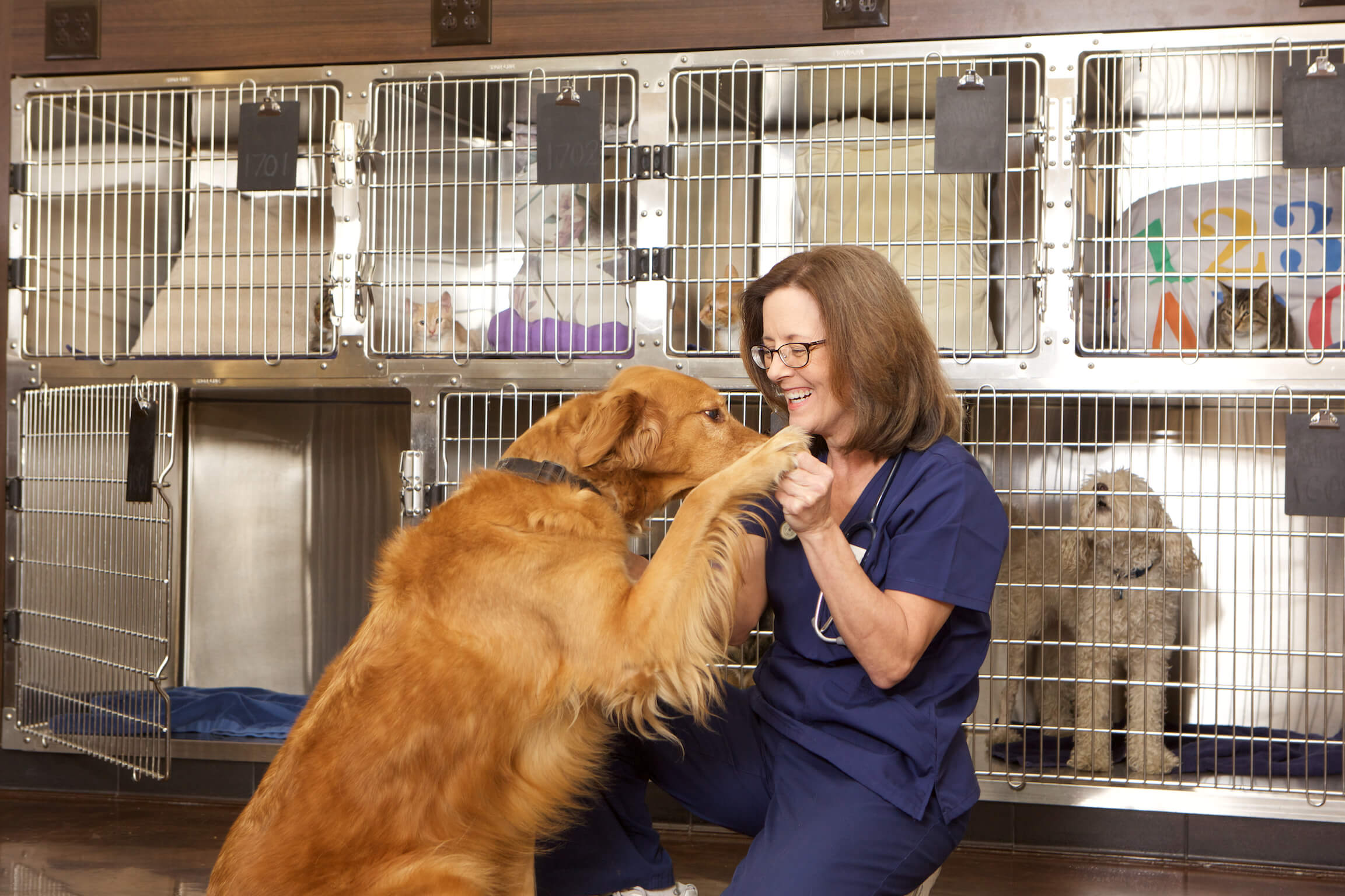
What is Kennel Cough and How Can I Treat It?
Just like humans, it’s normal for dogs to cough every once in a while. But if it sounds like they’re constantly hacking up a lung, something’s not right. Dry coughing fits could indicate the presence of a respiratory infection called kennel cough.
If your pup is coughing or “honking” repeatedly, schedule a trip to the vet as soon as possible and ask what you can do to help.
How dogs contract kennel cough
Kennel cough is highly contagious. The respiratory disease earned its name because dogs often contract it when they’re in close proximity to a large group of other canines like in a kennel, doggy day care, shelter, dog park or dog show. The infection is spread via airborne water droplets, direct contact with contaminated bodily fluids or frequently touched surfaces like food and water bowls.
The main cause of kennel cough is a bacteria called Bordetella. While most cases stem from this bacterial strain, it’s also possible for dogs to contract kennel cough from the canine adenovirus type 2, mycoplasmas, canine respiratory coronavirus or any number of other viral infections.
Symptoms of kennel cough
As the name suggests, the most noticeable symptom of kennel cough is a dry, hacking cough that makes a honking sound. Coughing fits are usually followed up with bouts of gagging. Inflammation in the dog’s airways causes an irritated, sore throat that becomes worse with the persistent cough.
Mild cases usually just result in a cough. However, more severe cases of kennel cough may produce additional symptoms such as a low fever, runny nose, lethargy and loss of appetite. If your dog shows any of the symptoms of kennel cough, take them to the vet right away. Although most cases of kennel cough clear up on their own, the presence of symptoms other than a cough may indicate that your dog needs antibiotic medication.
When kennel cough gets serious
Kennel cough affects dogs in different ways. Dogs of any age or breed can get it, and while cases are usually mild, kennel cough is much worse for young, elderly or immunocompromised pups. Dogs who are most at risk can develop a secondary infection, which may result in pneumonia. If left untreated, even a mild case of kennel cough can become life threatening.
Some pet parents might think their dog has kennel cough when the real diagnosis is something much more serious. This respiratory infection isn’t the only disease that produces a dry, hacking cough. The symptoms of kennel cough look similar to those caused by canine distemper and canine influenza, both of which require immediate veterinary intervention.
Because of this, you should never make the mistake of assuming your dog has kennel cough. The best course of action is to take your pup to the vet so you can receive an accurate diagnosis and treatment plan. A vet can rule out more serious respiratory infections to offer you some peace of mind. Prompt treatment will allow your pup to recover more quickly.

Treatment options for sick pups
Most of the time, kennel cough goes away on its own. The cough usually subsides after a week of rest and proper nutrition. Try to limit your dog’s physical activity so their immune system has enough energy to fight off the infection. Although some medication can alleviate symptoms, the best treatment for kennel cough is often just waiting for it to pass.
However, that doesn’t mean your dog has to suffer. There are a few at-home tricks owners can use to ease some of the pain. For starters, switch out your dog’s collar for a harness every time you go for a walk. When a sick pup strains against their collar, it can trigger a coughing fit and further irritate the lining of their airways. In severe cases, the dog could possibly sustain tracheal damage. A harness reduces coughing and makes your pup much more comfortable.
Good nutrition is key during the recovery period. The immune system needs a specific set of vitamins and minerals in order to minimize symptoms and help your dog recover quickly. Ask your vet about immune-boosting supplements as well as natural remedies that can soothe a sore throat. Owners should encourage their sick pups to drink plenty of water because hydration will also help an irritated throat feel more comfortable.
Kennel cough can be a real nuisance to your dog, but it doesn’t have to be. Early detection of kennel cough will save your dog from unnecessary pain. With the right treatment plan, your sick pup can return to full health a lot faster and jump back into playing with their doggy friends!


